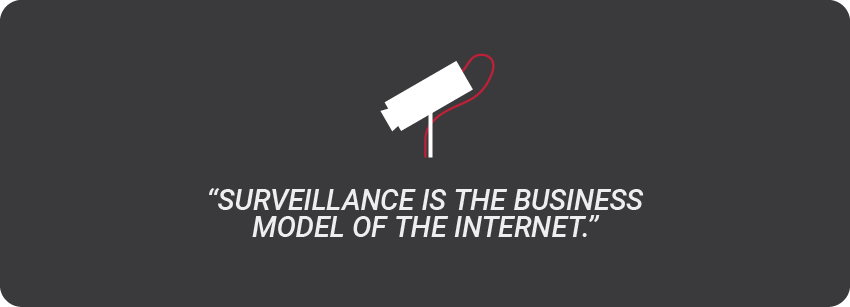Which Form of Encryption is the Most Secure?
Remember back when data breaches were something we heard about every once in a while? Nowadays, reports of them are as reliable as sports scores on the daily news. The constant threat has companies scrambling to not only protect information clients trust them with, but also to keep their companies operational.
In 2020, ransomware attacks jumped nearly 20% compared to 2019, and they’re doing more than holding information hostage. Attackers are targeting computer systems within massive industries, shutting down operations of major companies from meat producers, to pipelines, to pharmaceutical chains until they pay the ransom. The damages associated with these attacks are staggering, at times costing these companies upwards of $5,600 per minute just in downtime alone-this scenario costing $268,800 for just 48 minutes in downtime alone.
The loss is within hundreds of millions for many companies, making the hacking industry a colossal business. Although the financial gain for these cybercriminals is alluring, that’s not the only draw. A hacker claiming to be behind a recent attack behind a $600 million Poly Network Crypto heist claimed to do it “for fun.”
What Should Businesses Do to Protect Themselves?
Wouldn’t it be great if there were a simple solution to cybersecurity that lasted? The problem is that even though there is a tremendous amount of sophisticated security available, we need to consider Moore’s law. According to this law, “the number of transistors in a dense integrated circuit (IC) doubles about every two years.” What this means is that improvement in technology will double every two years in two different ways. First, it becomes more efficient: smarter, faster, lighter, and smaller. Second, it becomes cheaper and therefore widely accessible-remember cell phones back in the early 2000s? Gordon Moore, who came up with the law in 1965, believed the trend would last around ten years, but statistics show his theory has held for over fifty years.
For the cybersecurity world, this is where things get dicey. If improvements in technology double every two years, the security industry needs to follow suit. For now, there are plenty of options to keep data safe, but once quantum computers are a reality, everything will change. The best way to keep your company safe is to stay up to date on the latest information by working with an expert on secure encryption.
Use Every Resource Available
There are many ways to protect your information, and encryption is a powerful tool. The good news is that you don’t need to be an expert; you just need to make sure you work with them. Working with a team of experts will help you protect your valuable information, and they’ll be aware of the latest news and advances. Your security systems will be well protected by using software, secure drives, and hardware recommended by cyber security experts.
Know Which Types of Encryption are Available
All encryption offers some security, but companies should know their homework to ensure that they pick technologies that match their requirements. Here’s a quick overview of the different types of encryption:
- DES – The Data Encryption Standard – The original form of encryption that uses a symmetric key algorithm to encrypt data. However, this encryption method is obsolete primarily because it can now easily be cracked by today’s computers.
- Triple-DES (3DES) – An algorithm that uses the DES cipher three times to encrypt data.
- RSA – Rivest–Shamir–Adleman – A cipher algorithm using a public key cryptosystem widely adopted; however, there are newer and faster alternatives for asymmetric encryption based on elliptic curve cryptography (ECC).
- FPE – Format Preserving Encryption – A recent encryption method that encrypts and decrypts data while keeping the same format rather than altering it.
- AES – Advanced Encryption Standard – Symmetric key algorithm using the same key to encrypt and decrypt data is one of the most commonly used encryption algorithms for stored data. AES is a block cipher that comes in several different key sizes and modes of operation with other pros and cons; a block is the number of bits that the algorithm can process in one chunk. For example, XTS-AES 256-bit would refer to AES in XTS mode 256-bit key size.
Although having high levels of security are crucial, there are also basic procedures and protocols you can implement in addition to encryption:
- Schedule regular cybersecurity meetings
- Implement two-factor authentication
- Provide a VPN connection for remote workers
- Limit access to sensitive data
- Use only strong passwords
- Have a shredder for paper documents and use it
- Physically lock up document hard copies
- Keep only the data you need
Today one of the most secure encryption forms is AES256, however, the implementation of the technology is also of great importance which promotes the need for common standards even if your organization is not mandated to use products that comply to for example FIPS 140-2 level 3. The other reality is that new threats constantly arise for the professionals fighting cyber security as attacks become more sophisticated and reveal unknown vulnerabilities. These thieves are getting smarter, using morse code to communicate with each other and even using CAPTCHAs embedded with malware.
Ultimately, this isn’t something your business can do on its own. Still, with the help of software, secure devices and drives, and security protocols and procedures, you can significantly reduce your risk of an attack. The other great benefit of having a security team is that even if your business does come under an attack, there are many ways to limit the damages. To learn more about protecting your data, please visit www.datalocker.com or contact our sales department at sales@datalocker.com.
